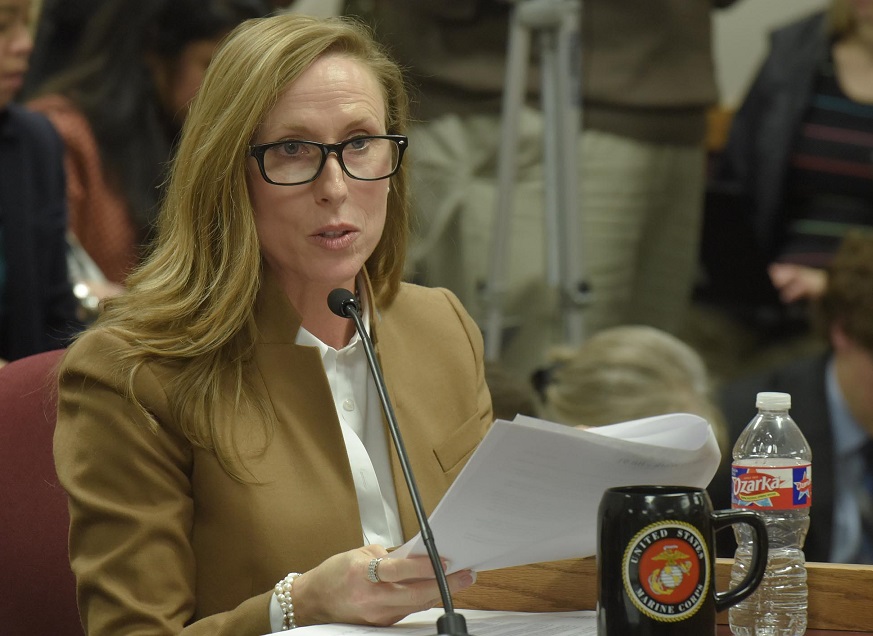The Missouri House is again being asked to consider creating a statewide prescription drug monitoring program (PDMP), with the aim of battling the abuse of opioids and other prescription medication.

House Bill 188 is sponsored by Sikeston Republican Holly Rehder, who has proposed a statewide PDMP for several years. Such legislation has passed out of the House several times but was held up in the Senate.
Rehder has been a strong proponent of PDMPs largely because of her family’s experience with opioid and drug abuse. One of her step-fathers was a drug dealer. Her daughter, Raychel, became addicted to pain relievers after an emergency room visit when she was 17. She went on to abuse other substances including methamphetamine before becoming drug-free more than 5-years ago. Rehder says other members of her family have also struggled with abuse issues.
“I know this issue inside and out, as a parent, as a kid who grew up in it, and it doesn’t matter what your background is, it doesn’t matter how you grow up or how you raise your children. It’s not a moral failing. Addiction is a disease,” Rehder told the House Committee on Insurance Policy.
Missouri is the only state in the nation without a PDMP. Such programs collect and monitor drug prescription and dispensing data to look for, among other things, “doctor shopping;” the visiting of multiple doctors in an attempt to obtain drugs that are commonly abused.
Rehder and other supporters say they don’t view PDMPs as a “silver bullet,” that will end the abuse of opioids and other prescription drugs, but as a tool that will help fight such abuse.
Opponents of PDMPs argue that they violate citizens’ rights by collecting personal data and putting it into a government database that, they say, could then be jeopardized by hacking or other breaches.
Doctor John Lilly of Springfield told lawmakers they should put privacy concerns above all others in considering PDMP legislation.
“Your job is not to make my job easier. Your job is to protect the liberty of the citizens of this state,” said Dr. Lilly. “I am a U.S. citizen first and a doctor second. I care about the liberty of these citizens of Missouri.”
Lilly and others speaking against HB 188 argued that data show PDMPs in other states have not been effective in fighting opioid abuse.
Monroe County Commissioner Ron Staggs asked the committee, “After you see the data from 49 states and a death rate that continues to climb why would you want to enact the same thing?”
Proponents say a PDMP wouldn’t just address drug abuse in Missouri. It could also help pharmacists spot cases in which patients might be prescribed unsafe combinations of medications.
Anne Eisenbeis works at a pharmacy in Moberly. She told the committee of one such instance that she caught by chance, that a PDMP would have ensured was flagged.
“I had a patient and a friend – a young man – bring in two prescriptions from two different doctors for two almost identical narcotics … had he not brought both physical prescriptions into my store, because in Moberly we don’t have access to the PDMP … he would’ve easily overdosed. There would’ve been an interaction with these two medications,” said Eisenbeis. “With a PDMP this would help me prevent this kind of medication error accident. I would’ve been able to see that he was given another prescription had he gone to another pharmacy.”
In previous years one of the proponents of a PDMP in the Senate has been Senator Dave Schatz (R-Sullivan), who is now the President Pro-Tem of the Senate. Rehder said she and Schatz worked in past years on compromises that have been worked into HB 188, and having him in Senate leadership bolsters the chance PDMP will become law this year.
The committee voted 13-3 to pass HB 188. It goes next to another House committee, which could vote on whether to send it to the full chamber for consideration.



